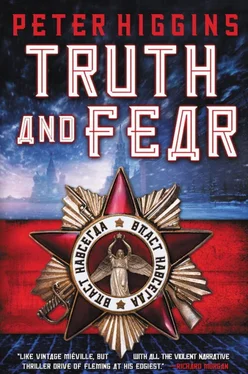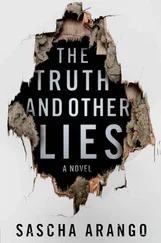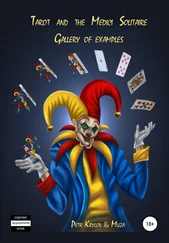So he sat in his chair and listened to music. It was a moment of pause, a widening of the spirit, a gathering of forces. The preparations for his new life were almost complete: his books were packed away in a wooden case and the ashes of his papers were smouldering in the grate. All his pamphlets and leaflets and speeches, all the incendiary paragraphs over which he had laboured in the long nights, they were all burned. Citizens! Sisters and brothers! New times are coming. The blood of the Vlast is thin and cold. A fragile skull under a paper face. Young Mirgorod will smash it with a fist! He had believed it in a way, and he believed it still, because it was true: in distant workshops far to the north, amid the pounding of steam hammers, the detonation of rivet guns, the blazing spark-showers of foundries spilling streams of glowing molten iron, new things were being built. Crimson seeds to scatter across the stars. Radiant humankind.
But Kantor let the papers burn without regret, feeling the fading warmth of the fire on his face like the evening sun in Lefalla’s orchard. A new phase was beginning for him now: there was new work to do, and he was ready. More than ready. He had long outgrown the tedious conspiracies of factions and cells, movements and tendencies and futile terrorist acts. The assassination of the Novozhd had been the last and greatest of his triumphs.
Kantor used explosives as an engineer did, with an engineer’s precision and strategic purpose, to loosen rock, to clear a blockage and blast a passage, as in a mine, a quarry, a tunnel, and the bomb that destroyed the Novozhd was the one that had broken through. It had released the landslide. Things were on the move. It was time for direct action now, and for that he needed different tools: he needed armies and police, he needed a city, he needed his own hands on the levers of power. And now he had that: the fox-bitch Chazia had given him Mirgorod in the end, as he knew she would. All he had to do was waft the scent of the living angel under her nose and she was avid for it, blind. She surrrendered the tool of her own destruction to him in her hunger for a sniff of the angel’s rancid piss.
Chazia was a hunter after power in her own way, but her way was weak. She wanted to be near power, to wash herself in it, to smell it on her fingers, but she had no idea what power really was. Chazia had the heart of a bureaucrat. She was insane–there was no doubt of that–but hers was the insanity of the mad administrator. She would give herself to power, when power was to be taken . Power was to be used . And to use power, you needed a poet’s purpose, not an administrator’s.
Kantor despised Chazia as he despised the rest of the authors of this pathetic Colloquium that sought to ride the rockfall of history let loose by the Novozhd’s death; he despised her as he despised the politicking conspirators and secret coterists he had been obliged to deal with for so long: the factionalisms of anarchists, nationalists, nihilists, social democrats, Birzelists. He despised them all. Weak-minded, they considered their goal to be the administrative implementation of ideas, principles, policies. They pleasured themselves in perpetual debate about ends and means and slogans, contending the disposition of property and labour, the organisation of schemes for the provision of sewerage and justice. They built and broke alliances, they disbursed compromise and patronage and money. Kantor understood their world–he had exploited it when he needed to–but he hated it. It absorbed energy and purpose and hope. Policies! The word itself was small-minded. Pusillanimous. It made him feel tired, nauseous, sleepy and bored. There was only one thing that mattered. Energetic force of personality. That was all there was to it, everything else was illusory, bones thrown to dogs. There was nothing of greatness in policies , and Josef Kantor was nothing if not great. He was a visionary. A poet. He saw the shape and sweep of things.
Chazia had given him Mirgorod, and Mirgorod would be his beginning. He would weld the city into one single weapon with a simple, efficient, basic, robust system of control. Fear. Terror. The Vlast had wandered in the foothills of terror but Josef Kantor would climb terror mountain. The city would be a Kantor-machine, and then the continent, the entire planet, would be a Kantor-machine. And still that would only be the beginning. Beyond the world were other worlds, other stars, the angels themselves. The Kantor-machine would force itself ever outwards with one simple beautiful poetic purpose, with an abstract beauty of its own. Perpetuation. Propagation. Expansion. Total universal integration.
And yet there was a problem, an obstacle: the living angel that came from time to time and screamed at him inside his head. For the moment, the angel’s direction and Kantor’s direction were the same, and it was useful to him. The angel was the leash that hauled Chazia to him again and again. But a machine could not have two engines. Kantor feared the angel, and the thing you feared must be confronted. It must be killed. In the end that time must come, and he would find a way.
The recording of Marfa-Anna Priugachina reached its end in a hiss of crackle. The metronome-click of the needle rebounded and rebounded at the limit of its groove.
The further north into the city Lom and Maroussia went, the smaller and poorer the houses became. Narrow streets smelled of rendering fat, cabbage and potatoes. There were shops selling black bread and dried fish, packets of dusty tea, sour kvass, second-hand linen. Pawn shops and moneylenders. In small yards groups of men smoked rank tobacco and tossed quarter-kopek coins against walls. Fat snowflakes flocked thicker in the air. They stopped at a second-hand clothes stall in the street. Bought a grey scarf and a pair of woollen gloves for Maroussia. A knitted cap for Lom. He pulled it low over his forehead to cover the wound there. They got the lot for a single rouble. Apart from a few kopeks, it was the last of their money.
Ten minutes later they came to the first smashed windows. Pieces of broken glass and shattered roof tiles littered the pavement. Lom felt the tension of violence and fear in the air. It was a tangible thing. A taste. Outside a ransacked clothing shop a white-haired woman was gathering up the ruins of her stock. She’d made a neat little heap of dislocated, broken-backed umbrellas at the roadside, and in her arms she held a pile of white undergarments, torn and trodden with mud. Her face was closed up tight. Nobody helped. Further down the street, other shops were the same. Words were daubed on walls and windows in red paint.
FUCK OFF LEZARYE!
A thin young man in a peaked felt hat was handing out printed fliers. Lom took one. It was badly printed on a cheap portable press.
‘Friends, remember Birzel!’ it read. ‘The government of the Colloquium is not legitimate. The Archipelago is not our enemy. All angels are dead. Let us unite with our brothers the giants and all free peoples everywhere. Wear the White Freedom Rose of Peace! Support Young Mirgorod and bring an end to this pointless war!’
The young man looked cold and scared and vulnerable. Lom wanted to stop and say something to him, but what could he say? Not all the angels are dead?
The part of the city they were walking through was like nothing Lom had experienced in daylight before. It felt both small and immensely extensive. Streets led into other streets, turned into alleyways, went blind and died, or opened suddenly into expansive paved squares. It was like the place he’d wandered into when he was lost on his way to Vishnik’s in the rain, the evening he first arrived in Mirgorod. Through open windows he could see the shadowy profiles of people at work in kitchens. In workshops open to the street men in overalls bent over dismantled engines, and from somewhere out of sight came the sound of a lathe. Every so often there was a street name, but the names were strangely anonymous, interchangeable, perfunctory. Meat Street. Polner Square. Black Pony Yard. A woman flapped a rug from an upstairs window: she caught his eye and looked away. Lom felt he had intruded on something private.
Читать дальше


![Кэмерон Доки - Правда и ее последствия[Truth and Consequences]](/books/79610/kemeron-doki-pravda-i-ee-posledstviya-truth-and-con-thumb.webp)









